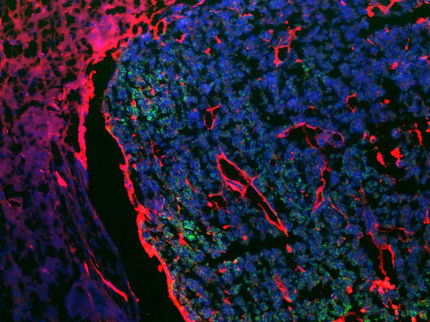New marine compound derived from the sea slug against lung cancer and melanoma
PharmaMar initiates phase II trials in lung cancer and melanoma
PharmaMar announces that Kahalalide F has begun Phase II trials in non-small cell lung cancer (NSCLC) and in melanoma. These trials begin on the strength of Phase I results when this compound showed a very favourable safety profile and clinical benefit in NSCL and melanoma as well as in a broad spectrum of tumour types.
Phase II trial in NSCL
The NSCLC trial is a multicentre open label study of Kahalalide F (KF) in patients who have relapsed or progressed after first line chemotherapy. KF will be administered weekly at a dose of 0.65mg/m2 in a one hour infusion. 25 patients will be included in the first instance with the potential to increase this to 34 patients. 12 European hospitals will participate in this clinical trial. The primary end point is response rate. Secondary objectives are the evaluation of the pharmacokinetics and further investigation of the safety profile of the product.
According to the World Health Organization, every year there are more than 1.2 million new cases worldwide of lung and bronchial cancer and approximately 1.1 million deaths. In the US, lung cancer accounts for about 13% of all new cancer cases diagnosed and 28% of all cancer deaths, one of the highest death rates of any cancer among both men and women. To put these numbers in perspective, more people die of lung cancer than of colon, breast, and prostate cancers combined. More than 173,000 people will be diagnosed with lung cancer in the US in 2004 and approximately 200,000 in the EU. Despite the availability of several treatment regimens, more than 160,000 patients will die of this disease in the U.S. in 2004
Phase II trial in Melanoma
The melanoma trial is an open label study of KF as a one-hour weekly infusion in patients with advanced malignant melanoma. KF will be administered at a dose of 0.65mg/m2. 18 patients will be included in the first stage of the trial, potentially increasing to 32 patients. The trial will be conducted in 12 European centres. The primary end point is response rate. Secondary end points will evaluate the pharmacokinetics and safety profile of the product.
There is no standard treatment for patients with metastatic melanoma. Treatment options include the surgical resection of isolated metastases, therapy with dacarbazine, combination chemotherapy and immunotherapy. However, response rates associated with these measures range between 15% and 20%, hence the urgent need for the development of new therapies.
Melanoma is the deadliest form of skin cancer. Approximately 132,000 people are diagnosed with melanoma worldwide every year (WHO, 2000 data). In the US, the American Cancer Society estimates that approximately 55,100 new melanomas will be diagnosed in 2004 and about 7,900 people will die of the disease. In the EU approximately 35,000 people were diagnosed with melanoma in 2000 and 9,000 people died of the disease.
Dr Miguel Angel Izquierdo, Director of Clinical Development at PharmaMar, said: "The clinical benefit seen in the Phase I trials both in melanoma and NSCL justify the beginning of these new Phase II trials. In addition, we are encouraged by the exceptional safety profile of Kahalalide F which has allowed the continuous administration of the drug for up to 20 months in patients showing clinical benefit".
Kahalalide F is a new marine compound derived from the sea slug Elysia rufescens. It alters the function of the lysosomal membrane, a mechanism that distinguishes it from all other known anti-tumour agents. Studies demonstrate that it induces cell necrosis in vivo (oncosis) and shows selectivity for tumour compared with normal cells in vitro. The cytotoxic activity of Kahalalide F is mediated by neither mRNA and protein synthesis de novo nor caspase activation.
Phase I clinical studies with Kahalalide F showed that the dose limiting toxicities were acute, reversible and asymptomatic grade 3-4 increases in liver transaminases. In these studies Kahalalide F has shown a very favourable safety profile, with no grade 3-4 myelotoxicity reported to date. In addition, emesis, alopecia, mucositis and renal and haematological toxicities have not been documented.
In 2003, Kahalalide F entered Phase II clinical trials for hepatocellular carcinoma, a common cancer with rising incidence rate due to the spread of hepatitis C infections. In total, more than 120 patients participating in four different clinical trials have been treated with this anti-tumour agent to date.
























































